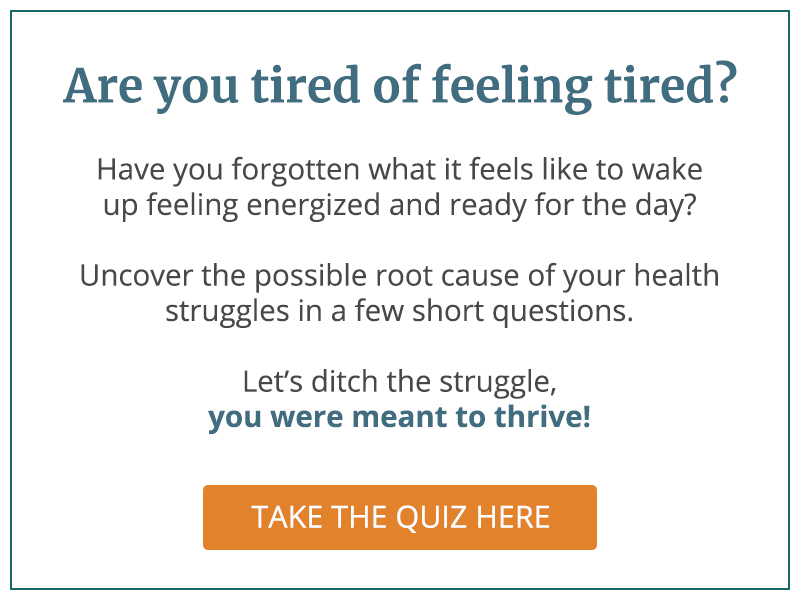It seems like fear is lurking around every corner these days.
Not only are the usual suspects around, like fear of heights and fear of a loved one getting cancer…but now you can’t pick up your phone without getting notifications that seem to scream, “you should be scared!”
There’s a deadly virus on the loose.
And of course, there’s systemic racism, global warming, and big pharma to be afraid of too.
But here’s the thing…being afraid doesn’t serve you.
In fact, fear can create negative health outcomes in much the same way you’d think of more tangible threats.
Living in a prolonged state of fear and anxiety can mean serious consequences for your health, so let’s talk about some ways it can affect you and how to get it under control.
The Health Consequences of Fear
Fear and anxiety release hormones and chemicals that are meant to spur us into action, quickly. After all, fear can be a very useful biological response at times. If you’re faced with something that’s truly and immediately dangerous, fear can serve to get us out of the way of that danger.
The problem comes in when we feel like we’re on alert at all times. A constant, low-level fear can create:
- Cardiovascular problems
If you’ve ever experienced a racing heart when you were nervous or scared, you may not be surprised that the long term effects of fear include heart trouble. Studies suggest that anxiety is a risk factor for cardiovascular disease, and pre-existing heart disease can mean that episodes of anxiety make coronary episodes more likely in turn.
- A suppressed immune response
Believe it or not, fear actually weakens our immunity. Studies show that psychological stress, both chronic and acute, can have an impact on the body’s ability to produce an effective immune response.
- Digestive issues
You know how when you’re really nervous about something your stomach hurts or you have to run to the bathroom? That’s your digestive system’s response to stress. And when you experience stress, fear, or anxiety for a prolonged time, difficult conditions like Irritable bowel syndrome (IBS) can result. Studies have proven the connection between your gut and your brain, so when your brain’s flooded with chemicals as a result of fear, your digestion suffers.
- Mental health disorders
Long term exposure to fear can result in an increased incidence of depression, post-traumatic stress disorder (PTSD), and fatigue. One study even showed that fear of crime was associated with negative mental and physical health outcomes.
- Learning difficulties
Fear can affect the mind’s ability to recall information, form long term memories, process information, and react to it. Studies show that children who have experienced trauma or suffer from anxiety are more likely to encounter learning difficulties as well.
How to Tame Fear
Obviously, we don’t want to turn fear off completely. A normal, healthy fear response can help us to get out of a potentially dangerous situation.
But a lot of the fear and anxiety that we experience is not a result of a true threat to our wellbeing.
Some of my go-to recommendations that I typically give my patients to help address fears include:
Mindfulness and meditation
You probably know by now that I’m a huge fan of meditation. It can truly help you to develop a mindset that’s almost impervious to fear.
Taking a digital detox
Turning off your phone for the weekend can create a lot of space in your life. And it can also help you avoid those fears of missing out that are exacerbated by social media.
Turning off the news
There’s nothing wrong with being informed about current events. But most news these days is highly colorized and designed to “sell” you on continuing to watch. And fear is a powerful psychological motivator. Which means there’s a lot of fear injected into the commentary you’re watching every single day.
Prioritizing self-care
Taking a few minutes to put yourself first and prioritize doing something that you actually want to do can help put fears aside, and put you in a mindset that keeps fear at bay.
Eating an anti-inflammatory diet
Yep, what you eat affects your brain. This goes back to the gut-brain connection. Eating an anti-inflammatory diet is one of the most important ways you can help combat the inflammation that’s created as a result of fear, and boost your overall health.
How Integrative Medicine Can Help You Address Fear
In the world of integrative medicine, we believe that the body is a complete system, not a combination of several systems working independently.
So when you’re suffering from fear or anxiety, it’s helpful to remember that philosophy. Sure, medications may be able to help address short term symptoms, but implementing a whole body, lifestyle-focused approach can mean you’ll find longer-lasting results.
If you need a little direction in this endeavor, I’d encourage you to download your free copy of my best selling book, Built to Thrive. It’s a primer in adopting a healthy lifestyle that will leave you feeling fearless.
References
https://www.ncbi.nlm.nih.gov/pmc/articles/PMC1299209/.
https://www.ajmc.com/conferences/nei-2017/the-effects-of-chronic-fear-on-a-persons-health.
https://www.liebertpub.com/doi/10.1089/act.2019.29223.jha.
https://www.ncbi.nlm.nih.gov/pmc/articles/PMC3595162/.
https://www.healthaffairs.org/doi/full/10.1377/hlthaff.21.6.106.
https://www.ncbi.nlm.nih.gov/pmc/articles/PMC4764710/.
https://www.ncbi.nlm.nih.gov/pmc/articles/PMC1361287/.
https://www.ncbi.nlm.nih.gov/pmc/articles/PMC3989422/.
https://www.ncbi.nlm.nih.gov/pmc/articles/PMC5641835/.
https://www.ncbi.nlm.nih.gov/pmc/articles/PMC2040373/.



